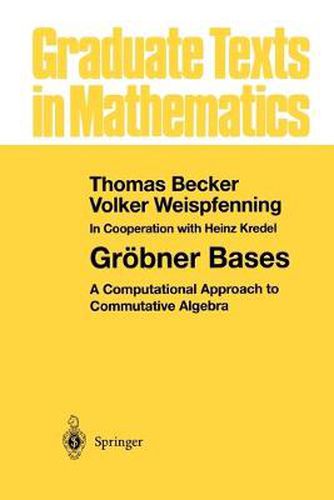Readings Newsletter
Become a Readings Member to make your shopping experience even easier.
Sign in or sign up for free!
You’re not far away from qualifying for FREE standard shipping within Australia
You’ve qualified for FREE standard shipping within Australia
The cart is loading…






This title is printed to order. This book may have been self-published. If so, we cannot guarantee the quality of the content. In the main most books will have gone through the editing process however some may not. We therefore suggest that you be aware of this before ordering this book. If in doubt check either the author or publisher’s details as we are unable to accept any returns unless they are faulty. Please contact us if you have any questions.
The origins of the mathematics in this book date back more than two thou sand years, as can be seen from the fact that one of the most important algorithms presented here bears the name of the Greek mathematician Eu clid. The word algorithm as well as the key word algebra in the title of this book come from the name and the work of the ninth-century scientist Mohammed ibn Musa al-Khowarizmi, who was born in what is now Uzbek istan and worked in Baghdad at the court of Harun al-Rashid’s son. The word algorithm is actually a westernization of al-Khowarizmi’s name, while algebra derives from al-jabr, a term that appears in the title of his book Kitab al-jabr wa'l muqabala, where he discusses symbolic methods for the solution of equations. This close connection between algebra and al gorithms lasted roughly up to the beginning of this century; until then, the primary goal of algebra was the design of constructive methods for solving equations by means of symbolic transformations. During the second half of the nineteenth century, a new line of thought began to enter algebra from the realm of geometry, where it had been successful since Euclid’s time, namely, the axiomatic method.
$9.00 standard shipping within Australia
FREE standard shipping within Australia for orders over $100.00
Express & International shipping calculated at checkout
This title is printed to order. This book may have been self-published. If so, we cannot guarantee the quality of the content. In the main most books will have gone through the editing process however some may not. We therefore suggest that you be aware of this before ordering this book. If in doubt check either the author or publisher’s details as we are unable to accept any returns unless they are faulty. Please contact us if you have any questions.
The origins of the mathematics in this book date back more than two thou sand years, as can be seen from the fact that one of the most important algorithms presented here bears the name of the Greek mathematician Eu clid. The word algorithm as well as the key word algebra in the title of this book come from the name and the work of the ninth-century scientist Mohammed ibn Musa al-Khowarizmi, who was born in what is now Uzbek istan and worked in Baghdad at the court of Harun al-Rashid’s son. The word algorithm is actually a westernization of al-Khowarizmi’s name, while algebra derives from al-jabr, a term that appears in the title of his book Kitab al-jabr wa'l muqabala, where he discusses symbolic methods for the solution of equations. This close connection between algebra and al gorithms lasted roughly up to the beginning of this century; until then, the primary goal of algebra was the design of constructive methods for solving equations by means of symbolic transformations. During the second half of the nineteenth century, a new line of thought began to enter algebra from the realm of geometry, where it had been successful since Euclid’s time, namely, the axiomatic method.